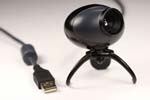
Access Tech Careers: Improving Access to Technological Education Programs and Careers for Community College Students With Learning Disabilities
http://accesstechcareers.landmark.edu/
The goal of this project is to increase the number of students with learning disabilities who pursue and graduate from technological education programs and either continue their academic pursuit of four-year technological degrees, or gain employment as successful technology workforce employees. Landmark College, a two-year college for students with learning disabilities and attention disorders, conducted a series of needs assessments of three community college technology programs and regional technology employers to develop a professional development program, based on best practices. The professional development materials cover a number of areas of struggle for students in technology-related courses, including mathematics and science instruction, mastering complex vocabulary, study skills, and metacognitive strategies to help students assess their own understanding. These materials are designed to be useful guides to instructors, students, employers, and those wishing to know more about assistive technology resources. All are available through the Access Tech Careers website.

 Once you've established your presence as a project or center, you
will undoubtedly have information you wish to communicate to
educational and industry partners, stakeholders, and the general
public. One way to accomplish this is by publishing a newsletter.
Newsletters are a great way to reach a broad audience of people
who might be interested in the work you are doing. They enhance
your visibility, remind your partners of what you're working on,
and can be passed on for wide reaching impact. If you're
considering starting a newsletter, we have some tips to make the
process pain-free and rewarding:
Once you've established your presence as a project or center, you
will undoubtedly have information you wish to communicate to
educational and industry partners, stakeholders, and the general
public. One way to accomplish this is by publishing a newsletter.
Newsletters are a great way to reach a broad audience of people
who might be interested in the work you are doing. They enhance
your visibility, remind your partners of what you're working on,
and can be passed on for wide reaching impact. If you're
considering starting a newsletter, we have some tips to make the
process pain-free and rewarding:
 Many ATE
projects and centers attend conferences throughout the year to
learn about best practices, make new connections, and see what
others in their areas are doing. When budgets are tight, however,
finding professional development opportunities can be a challenge.
Fortunately, a number of
ATE projects
and centers offer webinars throughout the year. Webinars are free,
only require an hour or two to attend, and provide a great
opportunity for you to meet others in the
ATE
community, learn about new teaching techniques, and more.
Many ATE
projects and centers attend conferences throughout the year to
learn about best practices, make new connections, and see what
others in their areas are doing. When budgets are tight, however,
finding professional development opportunities can be a challenge.
Fortunately, a number of
ATE projects
and centers offer webinars throughout the year. Webinars are free,
only require an hour or two to attend, and provide a great
opportunity for you to meet others in the
ATE
community, learn about new teaching techniques, and more.